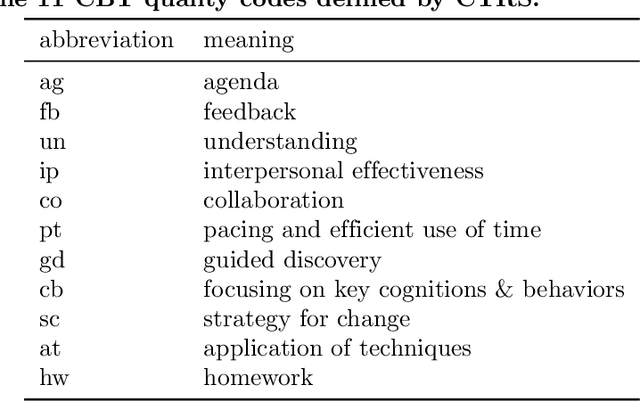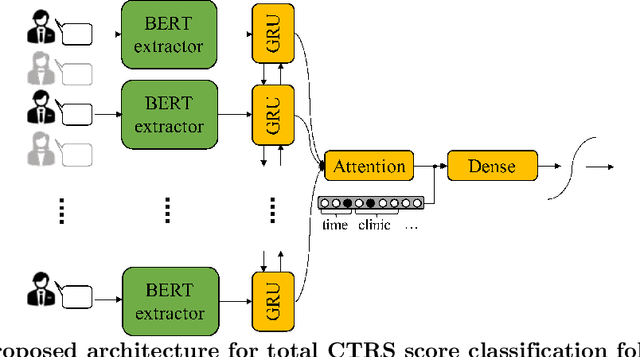Automated Quality Assessment of Cognitive Behavioral Therapy Sessions Through Highly Contextualized Language Representations
Paper and Code
Feb 23, 2021



During a psychotherapy session, the counselor typically adopts techniques which are codified along specific dimensions (e.g., 'displays warmth and confidence', or 'attempts to set up collaboration') to facilitate the evaluation of the session. Those constructs, traditionally scored by trained human raters, reflect the complex nature of psychotherapy and highly depend on the context of the interaction. Recent advances in deep contextualized language models offer an avenue for accurate in-domain linguistic representations which can lead to robust recognition and scoring of such psychotherapy-relevant behavioral constructs, and support quality assurance and supervision. In this work, a BERT-based model is proposed for automatic behavioral scoring of a specific type of psychotherapy, called Cognitive Behavioral Therapy (CBT), where prior work is limited to frequency-based language features and/or short text excerpts which do not capture the unique elements involved in a spontaneous long conversational interaction. The model is trained in a multi-task manner in order to achieve higher interpretability. BERT-based representations are further augmented with available therapy metadata, providing relevant non-linguistic context and leading to consistent performance improvements.
 Add to Chrome
Add to Chrome Add to Firefox
Add to Firefox Add to Edge
Add to Edge